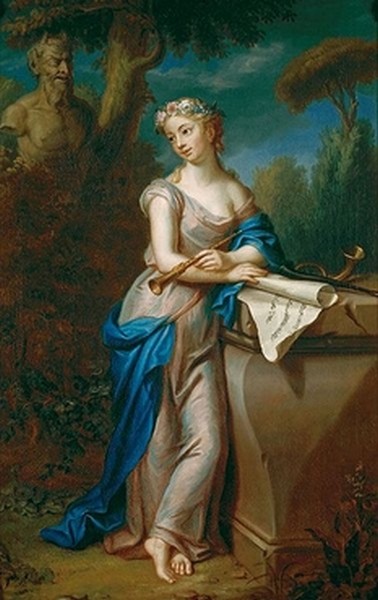
Last 11th June was the 150th anniversary of Richard Strauss's birth. Happy birthday! We started our celebration with a guest post written by the baritone Timothy Sharp, where he talked about Zueignung and Hans Hotter. Actually, in addition to this week’s post, there are three or perhaps four more planned, so Strauss will keep on being one of the usual composers on Liederabend.
Richard Strauss wrote about 200 Lieder, and only around 50 of them are part of the repertoire; the rest is hardly ever performed. We could say that’s pretty common, a composer’s complete corpus is rare in the repertoire, with the exception of composers such as Mahler and Duparc, who wrote just few songs. Those fifty Lieder are mostly performed with orchestral accompaniment instead of piano accompaniment; that's also normal, Strauss and Mahler fathered orchestral lieder. Some of these famous Lieder were not orchestrated by Strauss but by other composers during his lifetime. I understand that he was aware of that and consented. One last thing: among the Lieder that Strauss composed originally for voice and orchestra, only four are performed on regular basis.
In short: the Lieder by Strauss that are part of the repertoire, are a quarter of the Lieder he wrote; most of them are originally written for voice and piano and later orchestrated, not always by Strauss himself.
Non-orchestrated Lieder for voice and piano are just a small part of this successful group. Why? I wonder if it has something to do with the essential quality of the songs, although we could presume that Strauss chose to orchestrate some of his favourite ones. Success, though, might be related to diffusion: a concert with orchestra that includes some songs has much more audience that a song recital. In fact, Strauss orchestrated small groups of songs to perform them on those concerts he conducted, always with his favourite sopranos (his wife Pauline de Ahna in 1897 and 1900, Elisabeth Schumann in 1918 and Viorica Ursuleac in 1933). He also accompanied many piano recitals, but it seems that he preferred the conductor’s place (we shouldn't forget that Strauss was a great conductor apart from a great composer), and, besides, orchestrated Lieder were quite new, he barely had rivalry.
If that’s the case, what happens with the fifteen orchestral songs? I said before that only four are included the repertoire; of course, we are talking about the Vier lezte Lieder. The rest are sung or performed from time to time, but that’s about it. Why? I don't know either (you see, I'm quite honest with you today), but I think that they could be of interest, specially for Strauss' opera lovers. Today, we can test that as we are listening to one of them.
The first Strauss' Lieder for voice and orchestra are Vier Gesänge, op. 33, written between 1896 and 1897. Please note that the title is Gesänge (chants), not Lieder (songs); which gives us a clue. The poems are longer than usual, the songs last eight or ten minutes, they are not “regular” songs. All the orchestral songs are Gesänge or Hymnen except for the last four, posthumous published; how would Strauss have named them?
The four Op.33 chants are written for different tessituras, so it is difficult to perform them at the theatre; we are listening to the third, Hymnus, written for baritone or mezzosoprano. The poem, published in 1879, is by Friedrich Gustav Schilling, and it's a hymn to the muse, the source of inspiration of the poet. We are listening to the song performed by Bo Skovhus and the Orchestre Philharmonique de Nice conducted by Friedrich Haider.
Daß mich dein Äther umfließt;
Daß ich zu deinem Äther
Hinauf einen Menschenblick richte,
Der ihn edler genießt;
Daß du einen unsterbliches Geist,
Der dich, Göttliche, denket und in die schlagend Brust,
Gütige, mir des Schmerzes wohlhät'ge Warnung
Geschenket und diebelohnende Lust;
Daß du des Geistes Gedanken,
Des Herzens Gefühle zu tönen
Mir ein Saitenspiel gabst,
Kränze des Ruhms und das buhlende Glück
Deinen stolzeren Söhnen,
Mir ein Saitenspiel gabst;
Daß dem trunkenen Sinn,
von hoher Begeistrung beflügelt,
Schöner das Leben sich malt,
Schöner in der Dichtung
Krystall die Wahrheit sich spiegelt,
Heller die dämmernde strahlt:
Große Göttin, dafür soll,
Bis die Parzen mich fodern,
Dieses Herzens Gefühl,
Zarter Kindlichkeit voll,
In dankbarem Strahle dir lodern,
Soll aus dem goldenen Spiel
Unerschöpflich dein Preis,
Erhabne Bidnerin, fließen,
Soll dieser denkende Geist
An dein mütterlich Herz
In reiner Umarmung sich schließen,
Bis der Tod sie zerreißt!














Comments powered by CComment